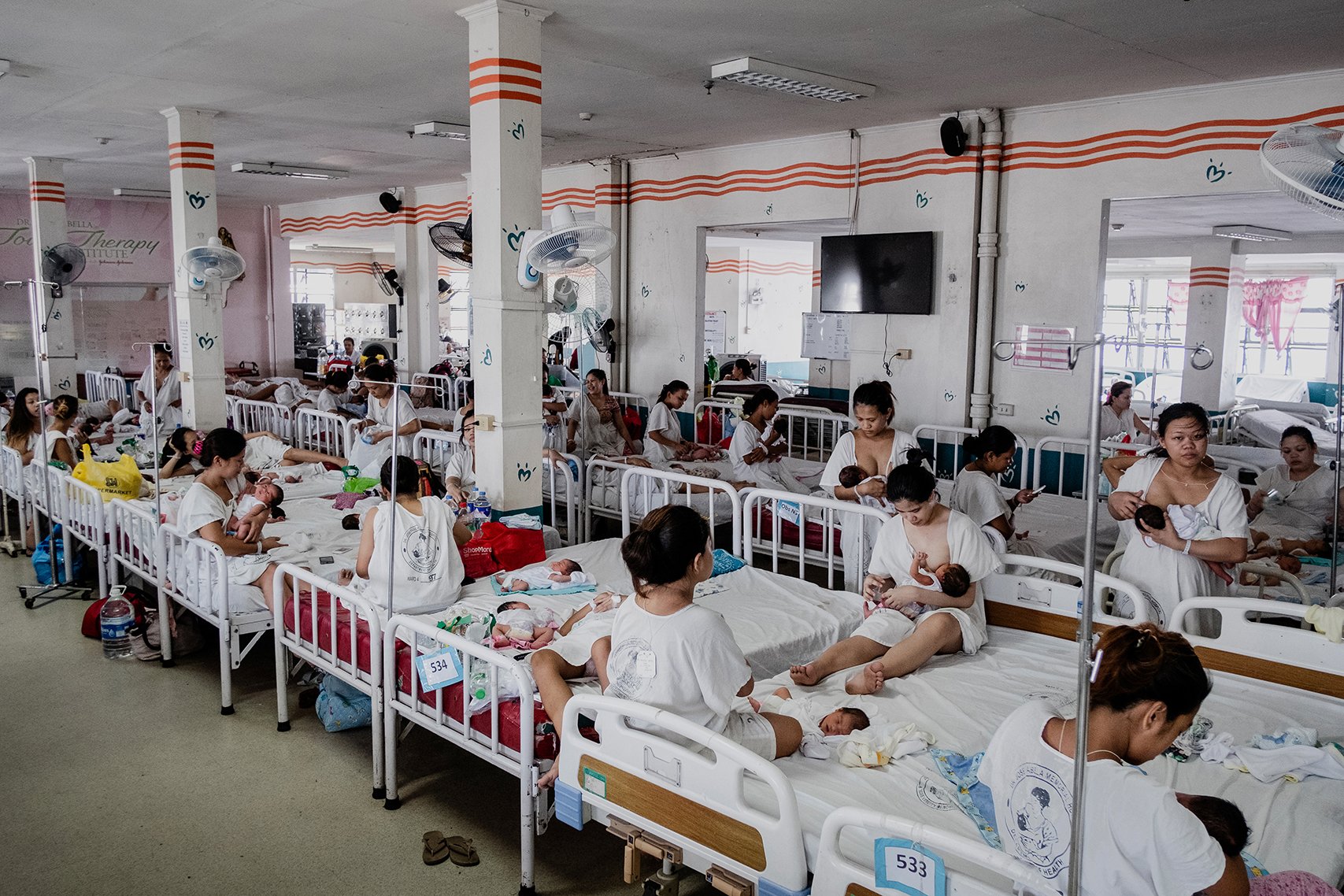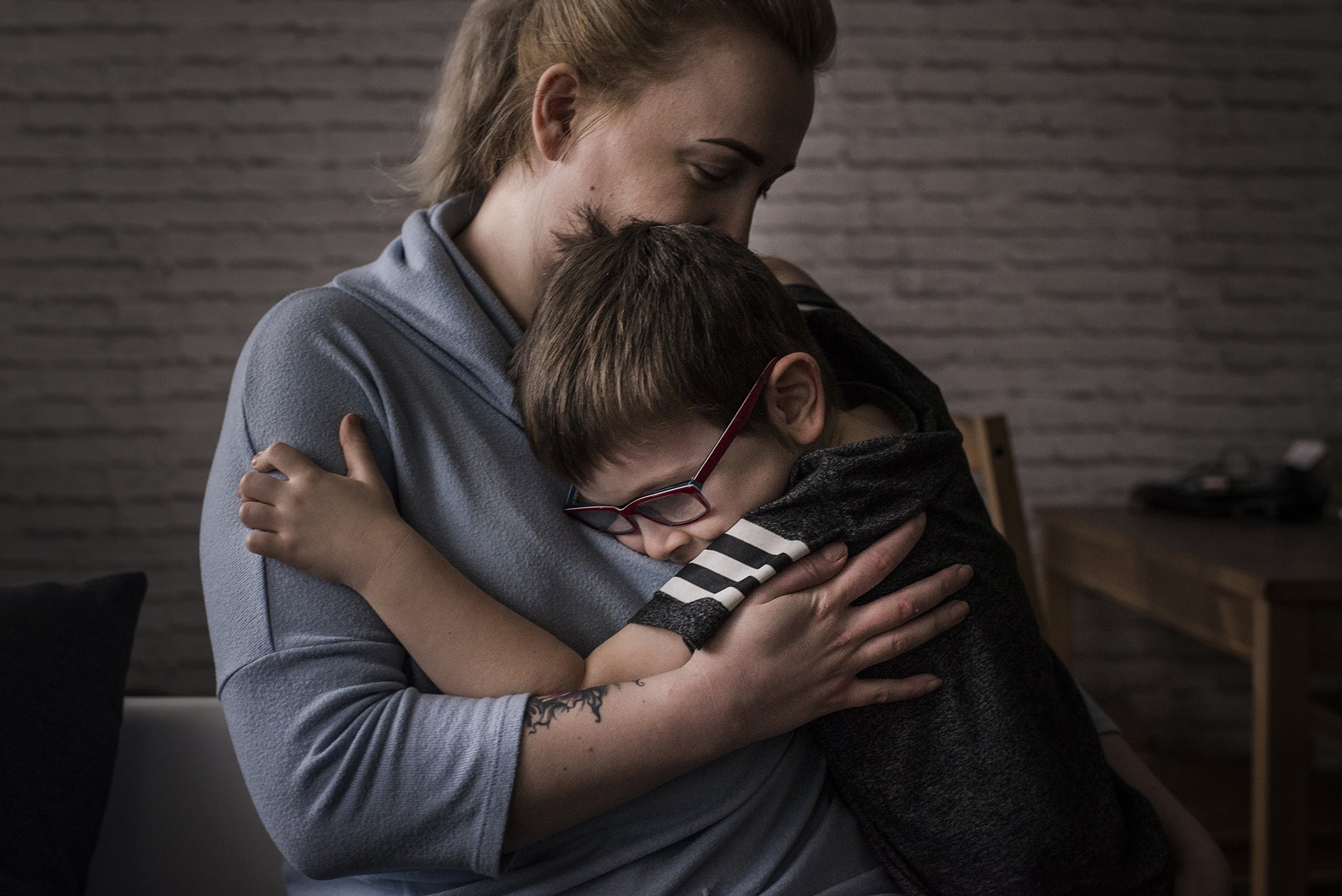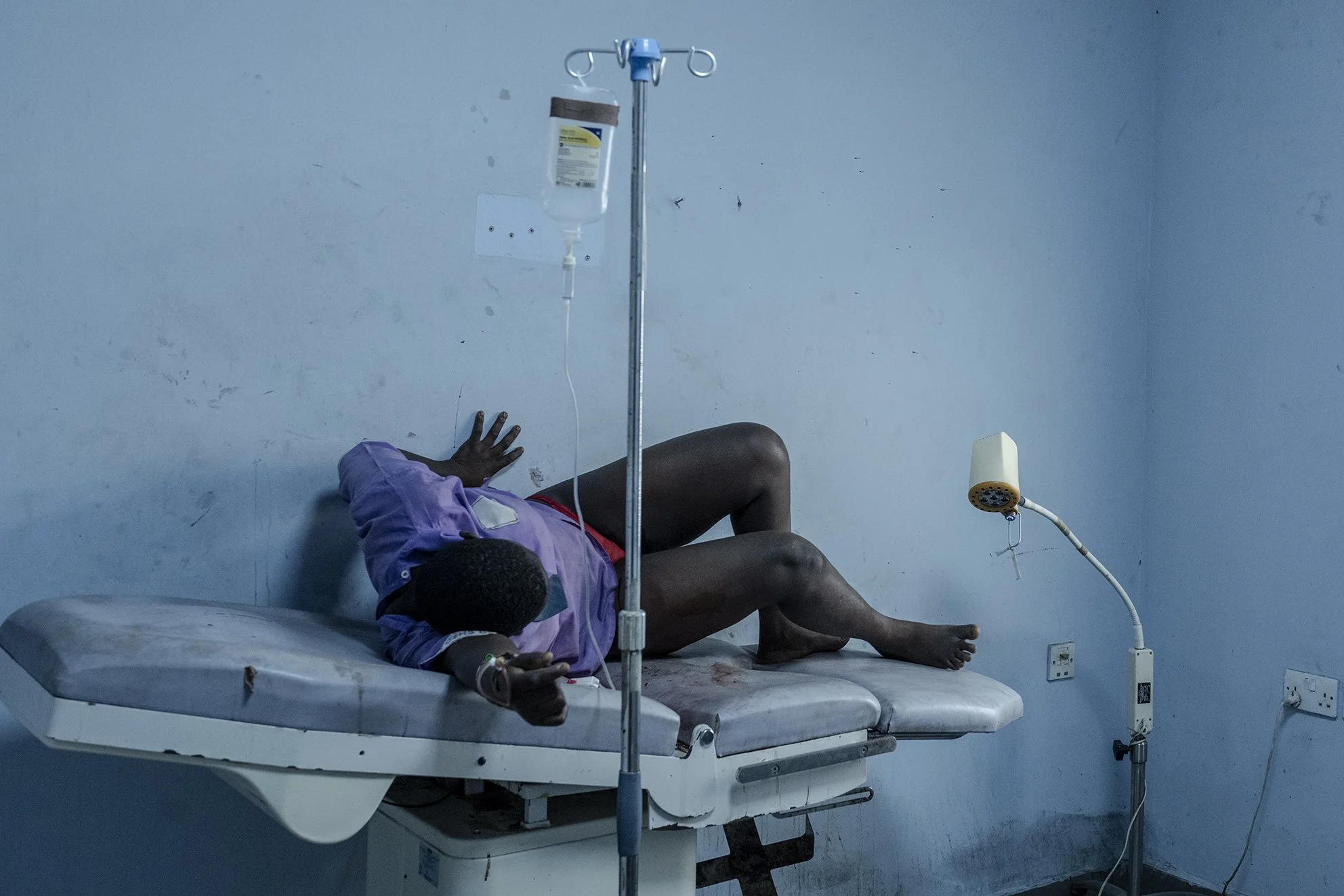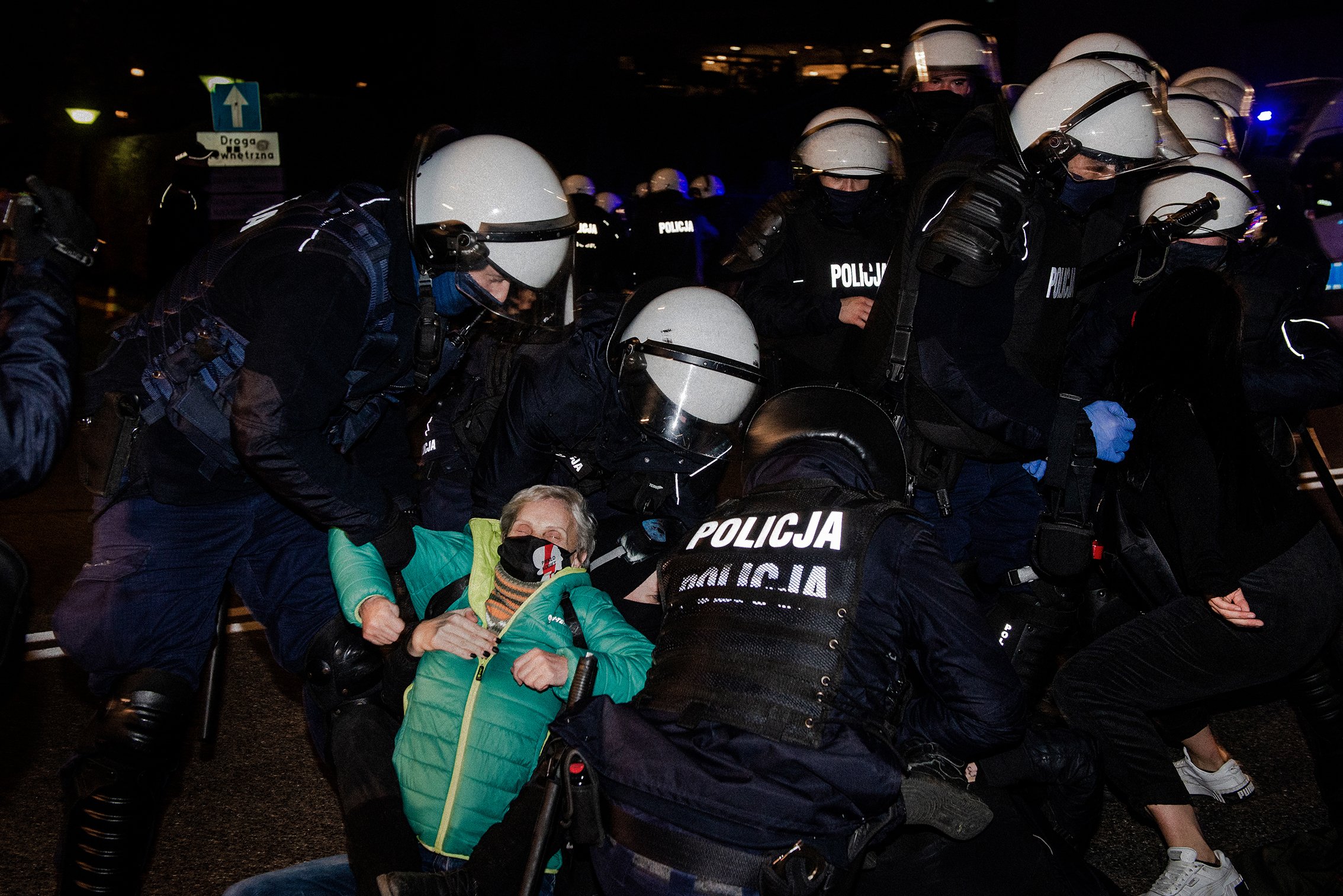THE PRICE OF CHOICE - Where Abortion is Illegal
Around the world, about 130 women die daily due to unsafe abortions. Annually, another 7 million are injured or permanently disabled. According to WHO, unsafe abortion, the only fully preventable cause of maternal mortality, still accounts for up to 13% of all maternal deaths globally.
Statistically, 1 in 3 women has an abortion in her life, regardless of race, religion, or social status. Safe abortion access has been established as a human right by numerous international frameworks, the UN Human Rights Committee, and human rights courts in Europe, the Americas, and Africa. Yet, across the developed and underdeveloped world, women are stigmatized, forced to carry unwanted or life-threatening pregnancies or resort to high-risk solutions. Many are juveniles, survivors of rape, or have health problems. Worldwide, women face rejection, financial burdens, and imprisonment. Restrictive abortion laws are interconnected with a lack of easy access to contraception, poor sexual education, gender-based and sexual violence, and religions used as political power.
In Poland, violently suppressed protests emerged after the restriction of abortion laws in 2020. In the Philippines, universal access to modern contraceptives was only legalized in 2012. In Egypt, women pregnant before marriage risk death for disgracing their families. Across the south of the USA, sexual education is not included in the school curriculum, and teenage pregnancy rates are the highest in the developed world. In El Salvador, women risk up to forty years in prison for abortion or even obstetric complications. In Nigeria, sexual violence was declared a national emergency, and maternal mortality is among the highest in the world.
Examples from Poland and the USA, where abortion laws effectively tightened in 2020 and 2022, show that restrictions increase infant and maternal mortality and morbidity. Women unable to terminate inviable pregnancies give birth to babies that don’t survive. At the same time, doctors scared of running afoul of the law, hesitate to take lifesaving steps for patients in case of an incomplete miscarriage.
The politicized debate is one about the value and role of women. It is a significant source of social stigma and a question of power: who decides on female fertility? The consequences of unsafe abortion impact not just women but their families, communities, and societies. As WHO states, lack of access to safe abortion costs developing countries health systems 553 million USD per year for post-abortion care.
*Some names and locations have been changed to protect the sources.

Alba Lorena Rodriguez Santos (31) embraces her two daughters, Juana (14) and Noris (11), a few days after being released from prison, where she spent over 9 years. At the age of 19 she was raped by her brother and two other men. She didn’t denounce the crime. She got pregnant and miscarried alone at home 5 months later. She was denounced by her neighbors, handcuffed to her bed in a hospital, condemned with homicide, and sentenced to 30 years in prison, where she was called “a baby killer” and mistreated by fellow inmates. Despite being released, she cannot live with her family.
Two days after coming back, she was threatened by gang members connected to the neighbor who denounced her 10 years ago, and with a gun pressed to her temples, she was asked to disappear from the neighborhood. 30.04.2019, San Salvador, El Salvador

Elen (48) is 4 months pregnant and came to a local healer for an abortion. She has 5 children and 2 grandchildren but got pregnant again with her new partner, who forbade her to use contraception and threw away her contraceptive pills. Due to Elen’s age and higher risk of complications, the healer only agreed to treat her after learning that she tried to procure a self-induced abortion. Elen was served a mixture of plants, bark, and alcohol before a deep massage, which localizes the fetus and presses it down to the cervix. The technique used as an abortion method in the region for centuries can lead to hemorrhage, perforation of the uterus, or death. The healer prays for the forgiveness and the survival of the patient every time before performing the massage. Statistically, in the Philippines, 3 women die daily due to unsafe abortion, according to the Guttmacher Institute. Tondo, Manila, Philippines, 11.05.2017

There is a shortage of beds at the post-delivery ward of Dr Jose Fabella Memorial Maternity Hospital in Manila, with up to four women sharing one bed. The facility recommends that patients stay in the hospital for a maximum of 24 hours after giving birth and has reduced the number of deliveries, focusing on patients with possible complications. On average, there are over 60 babies delivered in the hospital daily. Manila, Philippines, 18.04.2017.

Angela Michael (67) (center), an anti-abortion activist and former nurse, performs ultrasounds in a recreational vehicle transformed into a small clinic outside the Hope Clinic for Women in Granite City, Illinois. Michael and her husband park their RV outside of the abortion clinic nearly every day to dissuade patients from seeking abortions. They offer diapers and other supplies instead. Years earlier, she convinced Ashley Miller (29) (right) not to have an abortion. Ashley is now five weeks into her 4th pregnancy, likely with twins. She had a miscarriage a few months before after being beaten by her partner, a local police officer. In the first nine months after the Supreme Court's ruling, Illinois saw an increase of 12,400 abortions from the previous year as people traveled there from states with bans, according to the Society of Family Planning. The Michaels are concerned about this surge. Granite City, Illinois, USA, 19.07.2022

Iza (23) was given "rape drugs" and raped at a party in her village in the north of Poland. She did not remember what happened, did not report the crime, and a month and a half later discovered she was pregnant. She only told her mother, who wanted her to keep the pregnancy. Iza, despite remorse, decided to have an abortion and came to a clinic abroad alone, without a scheduled appointment. Immediately after the procedure, she went to pray in a nearby church. Prenzlau, Germany, 09.03.2017

Dr. Janusz Rudzinski (74) performs an abortion for a Polish patient at the public hospital in Prenzlau, Germany. The hospital located near the Polish border is one of the leading foreign clinics receiving Polish women seeking abortions. Rudzinski, a Polish doctor who has been living in Germany for over 30 years, is the clinic's head of the gynecology department. Due to the number of cases, he receives phone calls from Polish patients wanting to schedule an abortion, even when he is in the surgery room. Prenzlau, Germany, 09.03.2017

Karolina (28) hugs her son in their family apartment. She was 14 when she got pregnant with her oldest daughter. During the pregnancy, she was beaten and maltreated by her family members. Part of them was convincing her to have an abortion; another part was coming to pray a rosary at her mother’s house. Her second son, now 5 years old, was born with Asperger syndrome. She is receiving 35€ (150 pln) monthly care allowance for his treatment. When she got pregnant again, together with her husband, they sold their wedding rings to pay for abortion pills ordered over the Internet. Trzebinia, Poland, 30.01.2018.

Dr. Mawaheb El-Mouelhy gives a talk about reproductive health and female sexuality in a women’s clinic that she established in one of the poor urban neighborhoods in Cairo. The clinic provides primary reproductive healthcare and free-of-charge family planning. Dr. El-Mouelhy, an obstetrician who returned to Egypt after studying International Health at Harvard University, also advocates against female genital mutilation, which is still widely practiced in lower groups of Egyptian society. Cairo, Egypt, 18.12.2018

Torkwase Umoru (26) shows the scar from last year’s cesarean section and this year’s double colostomy that she went through last month. She was pregnant, and the fetus died, so she first went to a private clinic where, after the termination was performed, she developed severe complications. Her viscus was perforated during the procedure, causing the enteric contents to leak into the peritoneal cavity. She developed sepsis and, during weeks spent in a hospital, dealt with suicidal thoughts. She doesn’t want to have more children after the experience. Lagos, Nigeria, 21.12.2023

Informal settlements of Tondo are among the poorest and most congested slums in Metro Manila. People living here hardly have access to medical treatment or family planning.
Lany (51) lives in one of the houses on the street. She has 11 kids and had 3 abortions, self-procured with herbs and pills. The second time, she took herbs, alcohol, and 36 tablets of strong painkillers. She had hearing difficulties for several days. The third time, 5 months pregnant, she took Cytotec. The medicine contains misoprostol, officially used for stomach ulcers and to procure abortions safely up to 10 weeks worldwide, where access to official abortion pills is restricted. She was bleeding for two weeks before going to a hospital, where she was threatened to be reported and refused to be treated after several hours of wait. Tondo, Manila, Philippines, 23.05.2017

Julie (33) lives in a small room with her 3 kids and her husband, who works as a rubbish scavenger, earning 150 pesos (€3) a day. When Julie got pregnant for the 4th time, she feared not being able to provide for another child. Late in the 4th month, she took Cytotec pills bought at a black market. She had intense stomach pain and could not walk or urinate. In a hospital, she was treated after several hours of wait, only after admitting the self-induced abortion. When she woke up from anesthesia after a curettage, she was handcuffed to the bed, her husband was arrested, and policemen standing in the room handed her the fetus closed in a jar, saying, “Mother, this is your dead baby.” She had to borrow money to bribe the policeman to release her and her husband. Tondo, Manila, Philippines, 30.05.2017.

Heaven for the Angels; is an area for fetuses and newborns in Manila’s South Cemetery. It was financed by a former mayor of Manila City; Alfredo Lim. A similar location in the North Cemetery was funded by José “Lito” Atienza; also a former mayor of Manila; strongly opposed to abortion and who; for nearly ten years; banned the use of modern contraceptives in the city. Makati; Philippines; 28.04.2017

When Ebony Jones (37) was raped by her ex-boyfriend at age 17 and found out she was pregnant, her religious family refused to help her get an abortion. She was starving herself, overexercising, and beating herself on the stomach until she had a miscarriage. A few years later, she got pregnant again, and at 20 weeks, learned that because of lack of fluids around the fetus, lungs could not properly develop. Despite this, it was illegal to terminate the pregnancy at this stage under Mississippi laws, and she had no resources to travel elsewhere. When her son, Hunter, was born, she looked at him, grasping for breath for 10 hours before he died. “I went home with his birth certificate and an empty box with a black flower. They did not let me hold his body. No one talked to me about milk that would develop in my breasts or the hormones that were telling me that I was a mom”. She didn’t have funds to bury him and does not know what happened to his remains. Jackson, Mississippi, USA, 14.07.2022

Elizabeth (17) curls up in pain on a bed in the emergency unit of LASUTH Ayinke House Maternity Hospital. She was brought there a few hours earlier by her high school’s sanitation officer after expelling a fetus and blood in a school toilet. Elizabeth lives with her 92-year-old great-grandmother. Her mentally ill mother is not present, and she has no contact with her father. She didn’t tell anyone about the pregnancy. When her aunt arrived at the hospital, she insulted and beat Elizabeth until being removed by members of the medical staff. Elizabeth later waited for 18 hours on the bed for an evacuation procedure, as her family members disputed who was going to pay for it. She stayed in the hospital for 5 days, waiting for her relatives to pay the hospital bill and donate blood in exchange for the blood she had to be transfused due to the severe post-abortion bleeding. Lagos, Nigeria, 13.11.2023

A surgery room of a private maternity clinic located in Oshodi, the second lowest income area of mainland Lagos. The doctor, whose mother nearly died giving birth to his younger sibling, founded the clinic to fight maternal mortality and provide medical services for low-income patients. He also performs clandestine abortions mainly for women already connected to the clinic, teenagers, and rape survivors. According to the law in Lagos, termination of a pregnancy that does not endanger the mother’s life or health is punishable by up to 14 years in prison. Lagos, Nigeria, 11.12.2013

A table in a surgery room of a private maternity clinic in Cairo, after an abortion performed illegally, but by vacuum aspiration, the most modern and the fastest abortion method. One hour before the procedure, each patient is given misoprostol, which softens the inside of the cervix to facilitate access during the surgery, which lasts about 5 minutes. The patient is often already awake from light anaesthesia, still in the operating room, and leaves the clinic about 90 minutes later. The head gynaecologist and the owner of the place collaborates with local women’s rights clandestine organizations to provide safe and free abortions to survivors of rape and underaged girls. Cairo; Egypt, 04.12.2018

Pregnant women and mothers of children under five were asked to the middle of the headquarters of the Nigerian National Celestial Church of Christ in Makoko for a special blessing and as proof of the efficacy of prayers. Weekly service for the barren and needy, where the prayers for “the fruit of the womb” are the focus, happens in all Celestian churches worldwide. During the sermon prophet of the church, Afis Peter Kiki was encouraging people to ignore the government’s recommendation of having maximum 5 children and encouraging the believers to have as many as they wish. He was promising prosperity and health to all children born in the love of God. Lagos, Nigeria 27.09.2023

Members of “Abortion Dream Team” Polish NGO rest in a hostel room after traveling from Warsaw to Opole for one of their first open meetings about medical abortion and abortion related stigma. In the following years of discussions about abortion laws in Poland, the group became well known and worked to provide free, safe medical abortion to women in the country. Opole, Poland, 03.02.2017

Two days before the referendum on abortion rights in the Republic of Ireland, about 40 women from a feminist group, « Rosa,» dressed as characters from The Handmaid’s Tale, marched through the streets of central Dublin to raise awareness of the lack of reproductive rights for women in the country. Across Ireland, the roads were filled with pro-abortion and anti-abortion posters, encouraging people to vote for or against the legalization of abortion. Dublin, Republic of Ireland, 23.05.2018.

Performance artist and feminist Taryn De Vere (35) poses for a photo during an open photo session organized before an annual March for Choice in Dublin. Dressed as a pro-choice princess, she was distributing what she called “bodily autonomy cards” to raise awareness about the lack of women’s reproductive rights. Multiple venues organized pop-up events before the march, and in the last months before the referendum, various artists came together to campaign for a change of abortion laws. Dublin, Republic of Ireland, 30.09.2017

At the end of a protest against further restrictions on abortion laws in Poland, several people were arrested and a few forcefully removed from the streets by Polish police, including Leokadia Jung (65), a member of the “Polish Grandmas” activists’ group. For several months following the announcement of the law change, weekly protests were organized in the cities around the country. Protests in Warsaw, the capital, often involved police using force and teargas, even against political opposition parliamentary deputies. Warsaw, Poland, 09.11.2020

Krzysztof Sowinski (40) cries, sitting on the couch where his late wife lay for her last days at home before she was taken to a hospital. Marta Sowinska died of septic shock at the University Hospital in Katowice in April 2022 after being admitted a few days earlier with contractions in the fifth month of her pregnancy. Krzysztof believes doctors put Marta’s life in danger by not giving them the option to terminate the pregnancy while the fetus’ heart was still beating. Over a year after Marta’s death, Krzysztof has not moved anything from this couch or his display of ultrasound photos and other memorabilia. Dabrowa Gornicza, Poland, 31.07.2023.

On the day of the abortion referendum in the Republic of Ireland, a memory wall with support messages left by people was painted depicting Savita Halappanavar, who died in Ireland's University Hospital in Galway in 2012. Despite being admitted to the hospital with "unavoidable miscarriage" and her water breaking in the 17th week of the pregnancy, Savita was refused pregnancy termination as the foetus’s heartbeat was still detectable. At the time, the country's constitution granted the same rights to the "unborn child" and the pregnant woman. Savita died of sepsis and cardiac arrest a few days later. The social outrage after her death led to national protests and the change of the law 6 years later. Dublin, Republic of Ireland, 26.05.2018.

The crowd has gathered in Dublin Castle to celebrate the « yes » result of the referendum on legalizing abortion before the 12th week of pregnancy without restrictions, voted by 66.4% of the referendum participants. Several years of connected campaigns by over 100 organizations that gathered under the “Together For Yes” slogan led to the result. Before the change, abortion was constitutionally forbidden in the Republic of Ireland under any circumstances following the 1983 referendum. Until 2014, it remained illegal to procure abortion, even to save a woman’s life. Dublin; Republic of Ireland, 26.05.2018

Barbara Williams (60) (right), a women’s health provider from Cary Christian Center, is calling a nearby nursery to ask when Destiny Buchauau (16)(left) can reserve space for her children to attend. Destiny had her son at 14 and her daughter at 16. She dropped out of school and felt insecure about letting her children go, even for a few hours each day. She lives with her mother, older siblings, cousin, and children. Barbara Williams, who strongly opposes abortion, advocates for modern methods of contraception despite her church organization’s indications to only promote sexual education based on abstinence. Rolling Fork, Mississippi, USA, 13.07.2022

Rosa Esther (13) sits on a hospital bed in San Miguel a day after she gave birth to her daughter by a caesarean section. She was raped in her village on her way back from school by a man related to gang members leading the neighbourhood. The man lives close to the school, so Rosa and her two younger siblings stopped attending classes. Her parents filed a police complaint but didn’t expect the man to face any consequences. San Miguel, El Salvador, 25.03.2019

Prisoners from the detention centre for women in Izalco work in the final stages of its construction. The prison opened in March 2019 to take inmates from the women's prison in Ilopango, where the number of prisoners had reached four times the maximum capacity. Of the 1,500 women transferred, at least four, Kenia Isabel Hernandez (24), Jacqueline Nohemi Castillo (31), Evelyn del Carmen Sanchez Cabrera (32), and Salvadora Carolina Diaz (33), are among the group of women known as "Las 17+", incarcerated for aggravated homicide after abortion or obstetric complications outside the hospital. According to the Citizen Group for the Decriminalization of Abortion, due to severe abortion laws, in the past 20 years, at least 181 women were prosecuted after experiencing obstetric complications. Izalco, El Salvador, 09.05.2019.

Funmilola Musa (31) hugs her son, Faruq (7), sitting on the floor of their house, where alone, she gave birth to him and his sister. Her first child died at 3 years old. Funmilola always lived away from hospitals and didn’t have money for anti-natal care that she would need or hospital delivery. Each time during pregnancy, she was sick for 7 months, despite treatment that she would receive at medical facilities. She could not work, eat, and care for her children. She had 4 abortions, 3 were done by a traditional nurse in a private house. All without anesthesia or post-abortion care. The fourth abortion was done with an injection and abortion pills provided by a different auxiliary nurse, who also provided her with a contraceptive implant, effective for 3 years. Ota, Ogun, Nigeria, 07.12.2023

Jennifer Uwakwe (18) died after spending the night at the emergency unit of LASUTH Ayinke House Maternity Hospital, where she was brought 15 hours earlier by her uncle, Paul Uwakwe (32) with severe sepsis and kidney malfunction, screaming in pain. She admitted going through a clandestine abortion about two weeks earlier but did not tell anyone what exactly happened. Jennifer’s state was deteriorating during the night, and as her family couldn’t afford ICU care, she was treated with basic services in the emergency ward. She was pronounced dead after 5 minutes of attempted resuscitation. Lagos, Nigeria, 25.11.2023

Mercy Uwakwe (32) (middle) collapses from pain during the funeral of her daughter, Jennifer Uwakwe (18), who died 4 days earlier from unsafe abortion in Lagos. Mercy was 14 when she gave birth to Jennifer and brought her up as a single mother. Her daughter went to Lagos right after high school last year to help the family financially. Jenniffer’s body was driven during a 15-hour journey from Lagos to her home village in Cross River state. She was buried during a small nightly ceremony. Traditionally, a child who dies should be buried within 24 hours, but Jennifer’s family struggled to borrow money for hospital bills and transportation payments, which delayed the ceremony.
Mercy died unexpectadly less then two months after her daughter's funeral. She orphaned three sons, aged 13, 5 and 3 years old. The family did not know about any sickness and believes that she died because of an immense grief. Ukele village, Cross River, Nigeria, 29 November 2023
